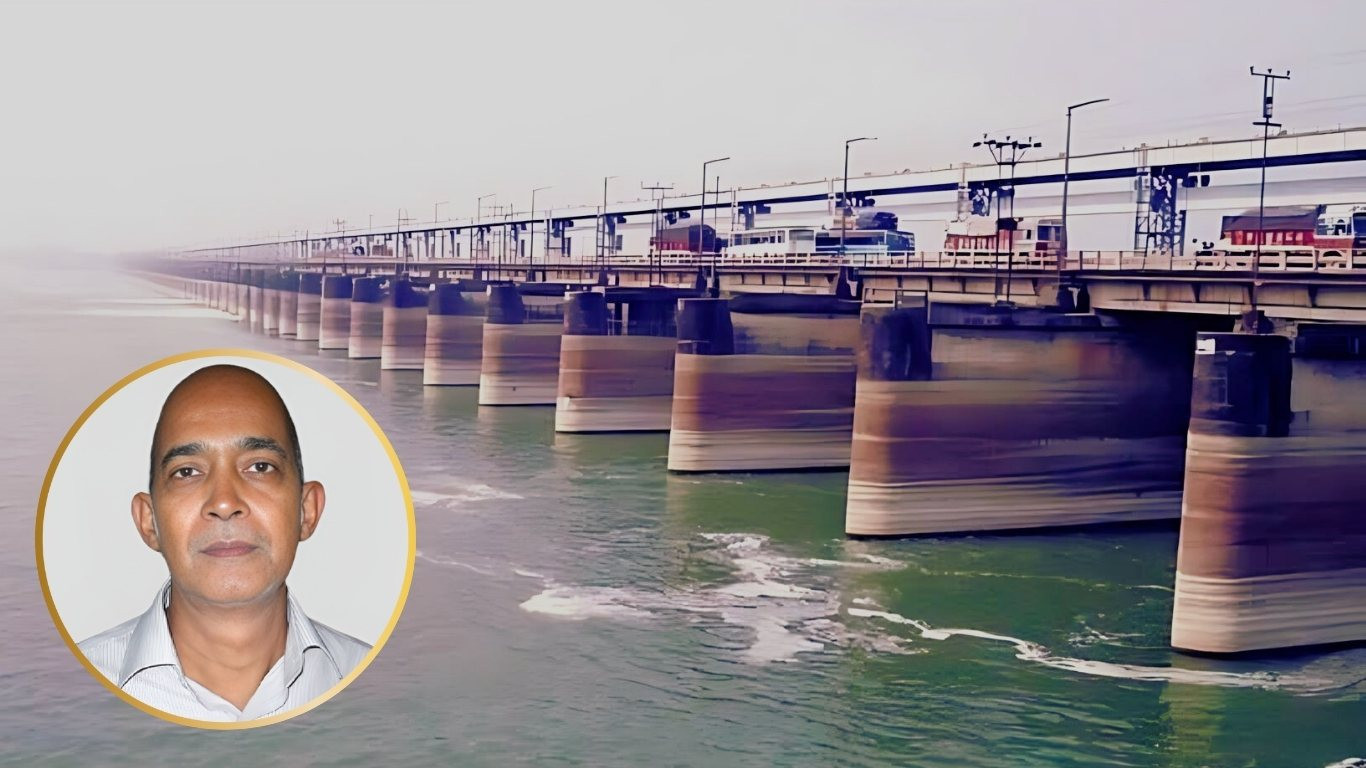News Analysis
Mamata-led TMC ups the ante on Ganges water-sharing treaty renewal issue
Published: 24 Jun 2024

There is a sense of dejavu as West Bengal’s ruling Trinamool Congress led by chief minister Mamata Banerjee has upped the ante against Prime Minister Narendra Modi government on the issue of renewal of the Ganges water-sharing agreement which expires two years down the line.
After having steadfastly opposed the Teesta river water-sharing treaty for the last 13 years putting it in a limbo, it remains to be seen what stand the Mamata government takes on the Ganges accord.
That the Modi government is set to face a challenge on the Ganges treaty too was amply indicated by TMC Parliamentary Party Leader in Rajya Sabha, Derek O'Brien, told reporters in New Delhi on Sunday that West Bengal is a party to the Ganges water-sharing accord but was not consulted on the decision to begin negotiations to renew the 30-year-old arrangement.
"The state is a party to the treaty. Even our dues for the previous treaty have not been cleared," O'Brien said. He alleged "dredging of the Ganga has been stopped. It is the primary reason for floods and erosion. This is a plan to sell off Bengal."
The TMC stand came a day after the decision to commence talks for renewing the Ganges water-sharing treaty was taken during talks between Bangladesh Prime Minister Sheikh Hasina on Saturday and Modi had in New Delhi on Saturday last. Modi had said India and Bangladesh will begin technical-level talks for renewal of the 1996 Ganga water treaty.
Mamata Banerjee seems ready to step up pressure on the Modi government on the Ganges treaty renewal issue. According to sources, she is in touch with her opposition INDIA bloc allies to mobilise support and raise the issue prominently in the upcoming first session of newly-elected 18th Lok Sabha.
Since Bengal is a crucial stakeholder on the Indian side when it comes to sharing the waters of trans-border rivers with Bangladesh, Mamata is miffed that the Modi government did not consult her before deciding on the renewal of the Ganges treaty.
Mamata, sources say, is likely to write a letter to Modi, flagging the concern over excluding West Bengal out of the decision.
The Ganges water-sharing treaty was signed by the two countries in Dhaka in 1996 when the then Indian Prime Minister H D Deve Gowda and West Bengal’s former chief minister Jyoti Basu had travelled to Dhaka for the purpose.
Under the Indian Constitution, water is a subject within a state’s jurisdiction and the federal government must take the state government on board for any decision concerning it.
In February 2022, Mamata, who came to power in May, 2011, had written a letter to Modi expressing concern over the continuous erosion along the Ganga in Malda, Murshidabad and Nadia districts of the state.
In her letter, Mamata said erosion has caused loss of thousands of square kilometres of land and sought reconsideration of the Centre's decision in 2017 to withdraw the extended jurisdiction of Farakka Barrage Project Authority for protection of the river bank from further erosion.
Mamata has consistently opposed the Teesta water-sharing treaty and opted out of the then Indian PM Manmohan Singh’s visit to Dhaka in September, 2011.
It also remains to be seen what stand the state government of Bihar, through which the Ganges flows after passing through Uttarakhand and Uttar Pradesh states, takes on the Farakka barrage issue.
Bihar chief minister Nitish Kumar had on several occasions in the past blamed the Farakka barrage for increased siltation in the Ganges in the state. In 2016, at a meeting chaired by PM Modi, Nitish Kumar had demanded removal of Farakka barrage saying it has more disadvantages than benefits. Nitish was at that time in the opposition camp.
However, Nitish is now a key ally of Modi and a constituent of the National Democratic Alliance coalition government at the Centre.
TMC hopes that with INDIA’s increased strength of 234 MPs in the 543-member new Lok Sabha, it would be able to put the NDA government, whose strength is 294, under pressure on the Ganges treaty renewal issue.

